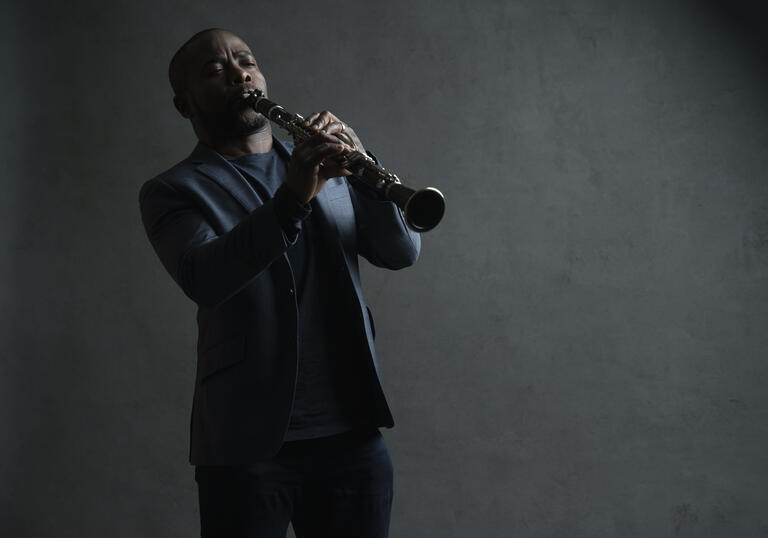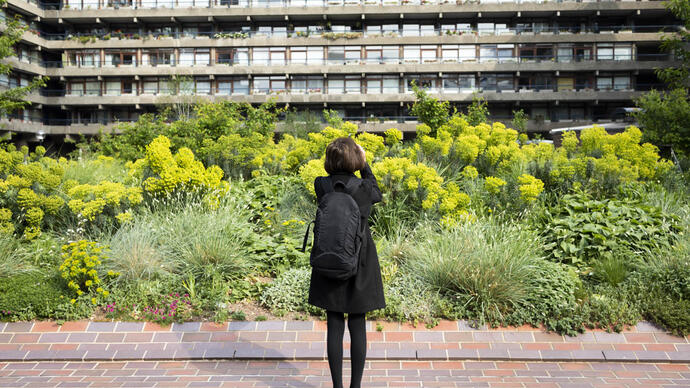
Programme and performers
James Lee III Ad Anah?
Adolphus Hailstork Three Smiles for Tracey
1. Swiftly
2. Gently
3. Sprightly
Leonard Bernstein Clarinet Sonata
1. Grazioso
2. Andantino – Vivace e leggiero
Jessie Montgomery Peace
Aaron Copland Clarinet Sonata
1. Andante semplice
2. Lento
3. Allegretto giusto
Anthony McGill clarinet
Michael McHale piano
Artist biographies
Clarinettist Anthony McGill enjoys a dynamic international solo and chamber music career and is Principal Clarinet of the New York Philharmonic – the first African-American principal player in the organisation’s history. He is the recipient of the 2020 Avery Fisher Prize, one of classical music’s most prestigious awards.
He appears as a soloist with top orchestras, including the New York and Los Angeles Philharmonic orchestras, the Metropolitan Opera and the Baltimore, Boston, Chicago and Detroit Symphony orchestras. He performed alongside Itzhak Perlman, Yo-Yo Ma and Gabriela Montero at the inauguration of President Barack Obama, premiering a piece by John Williams.
As a chamber musician he has collaborated with the Brentano, Daedalus, Guarneri, JACK, Miró, Pacifica, Shanghai, Takács and Tokyo quartets, and performs with leading artists, including Emanuel Ax, Inon Barnatan, Gloria Chien, Yefim Bronfman, Gil Shaham, Midori, Mitsuko Uchida and Lang Lang.
He serves on the faculty of the Juilliard School and is the Artistic Director for its Music Advancement Program. He holds the William R and Hyunah Yu Brody Distinguished Chair at the Curtis Institute of Music.
In 2020 Anthony McGill’s #TakeTwoKnees campaign, protesting at the death of George Floyd and historic racial injustice, went viral. Earlier this year he partnered with Bryan Stevenson and the Equal Justice Initiative to organise a classical music industry convening at EJI’s Legacy Museum in Montgomery, Alabama, in which leaders and artists in classical music examined America’s history of racial inequality and how this legacy continues to impact their work.
anthonymcgill.com

Our Patrons and supporters
Find out about our Patrons, who help us keep our programme accessible to everyone and allow us to continue investing in the artists and communities we work with.
Love the arts? Become a Patron to engage more closely with our programme.

Who we are
Meet our management team, our Board and the Trustees of our charitable arm, Barbican Centre Trust.
